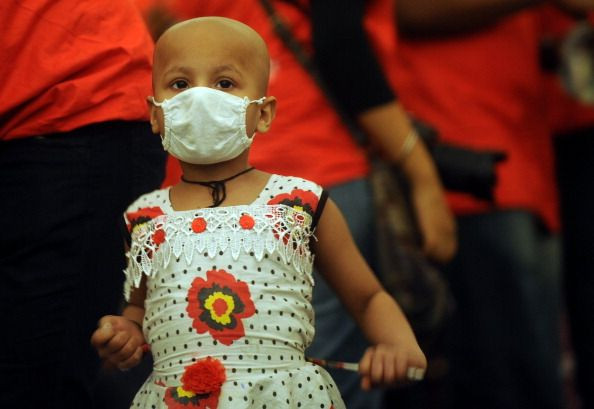Depression Risk Increased In Adults With History Of Chronic Diseases In Youth Such As Cancer

New research has found that the long-term consequences for those who battled chronic childhood illnesses, such as cancer or asthma, can last long after recovery.
The study from the University of Sussex in England and published online in the Journal of Child Psychology and Psychiatry found that sufferers of any type of chronic disease in childhood are at increased risk of developing depression, anxiety, and other types of emotional problems. These chronic childhood illnesses can cover anything from arthritis and asthma to childhood cancer, the report found, however some diseases were correlated with specific mental health risks.
"In particular, we found that cancer was significantly associated with adult depression,” explained senior researcher Dr. Darya Gaysina in a recent statement. “Although the research on other chronic conditions is very limited, when we removed cancer from the sample, the link was still there. So it is not only cancer that's associated with adult emotional problems.”
For their study, the team looked at samples of more than 45,000 adults and discovered that these mental health issues, particularly depression, were more prominent in those who dealt with chronic childhood illnesses. The team hope these findings may inspire better prevention methods for sick children, to ensure that a patient's mental health is also a main focus on their recovery.
Depression is a mental illness that is often hard to diagnose and distinguish from common cases of “the blues.” According to the National Institute of Mental Health, depression is described as a serious mood disorder and characterized by its ability to disrupt a patient’s capacity to handle everyday activities such as sleeping, eating, and working. There are a number of different forms of depression, such as persistent depression, which lasts for at least two years, and seasonal affective disorder, when depression is largely brought on by the winter months when there is less natural sunlight.
It is also fairly common to develop depression when dealing with a chronic illness. For example, according to WebMD, depression is one of the most common complications of chronic illnesses and it’s estimated that up to one-third of people with a serious medical condition will experience symptoms of depression. Women are slightly more likely than men to develop depression, but overall the risk of depression is highest among those living with a chronic disease. This risk is even higher if the person also has a history of previously experiencing depression prior to their illness.
Source: Secinti E, Thompson EK, Richards M, Gaysina D. Research Review: Childhood chronic physical illness and adult emotional health – a systematic review and meta-analysis. The Journal of Child Psychology and PSychiatry. 2017
See Also:
Depression Not Just A Mental Illness; It's A Systemic Disease That Affects The Entire Body
Best New Depression Treatments: 80% Of Patients Find Full Recovery With Metacognitive Therapy
Published by Medicaldaily.com



























